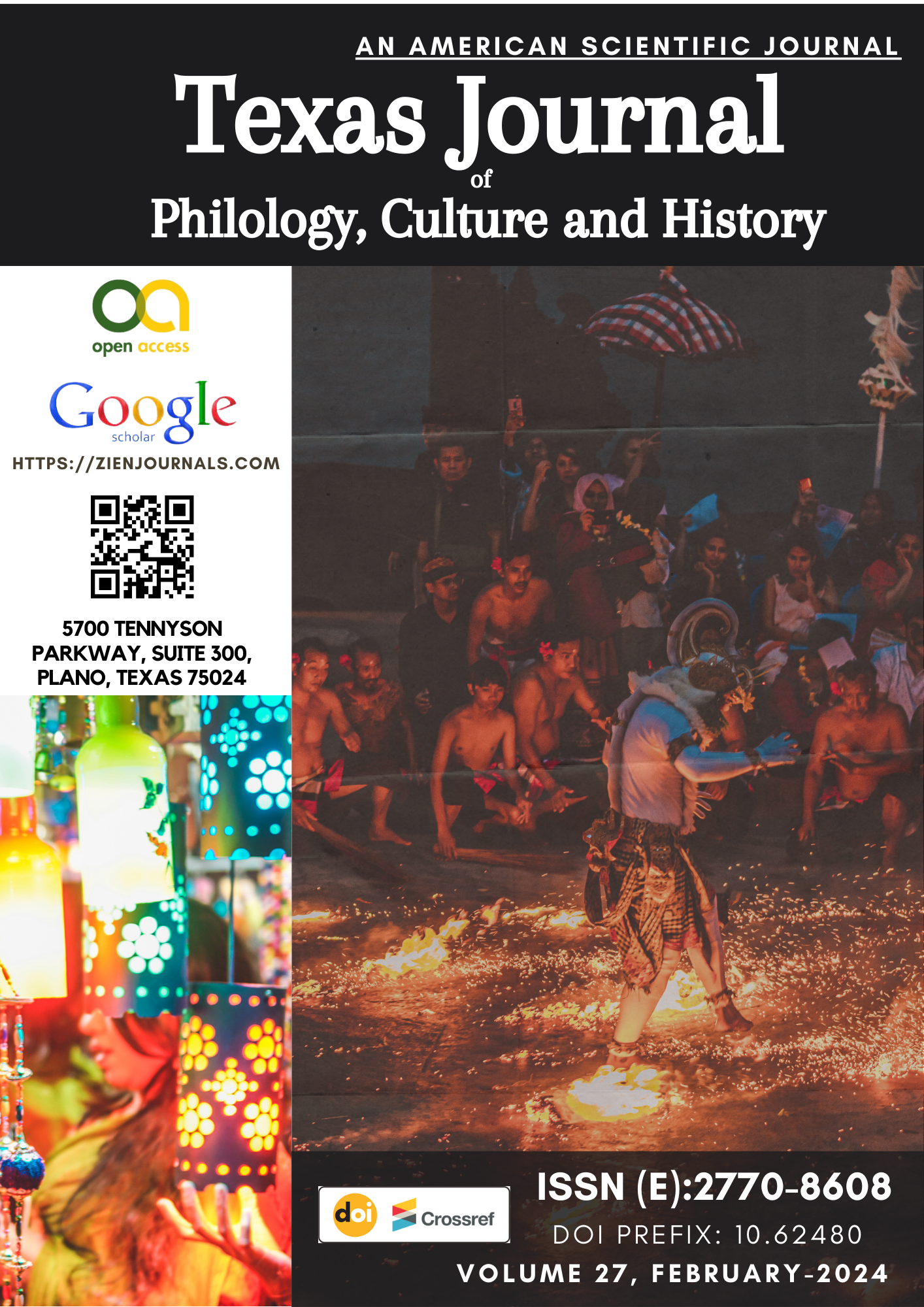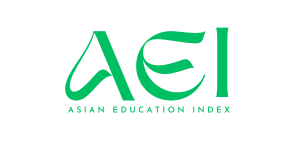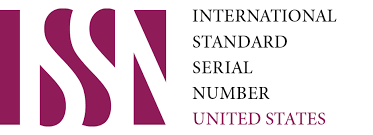Vocabulary Proficiency And Language Skills Development Of English Majors: Various Factors And Significant Impacts
DOI:
https://doi.org/10.62480/tjpch.2024.vol27.pp11-22Keywords:
Descriptive-Inferential, Factors, Language, QuantitativeAbstract
English majors should possess vocabulary proficiency and language skills to excel in their field. This study aimed to investigate the various factors and significant impact of vocabulary proficiency and language skills development on the English majors at Cebu Normal University-Main Campus. Using a quantitative approach with a descriptive-inferential design, the research investigates the significance of demographic profiles in language development. A Likert scale, designed by the researchers, gauges factors affecting vocabulary and language skills in 71 randomly selected respondents from three different degree programs. Based on the findings, most of the respondents scored very high, indicating that these factors are likely to improve their vocabulary and language skills. Moreover, most respondents are female, and their socioeconomic status tends to be in the poor and lower-income categories. Findings suggest that there is a significant relationship between the respondents’ degree program with a p-value of 0.039608 and socioeconomic status with a p-value of 0.0001 and their vocabulary proficiency and language skills development, with gender showing no significance.
References
Adolescent & Adult Literacy, 45(4), 310-318
https://www.researchgate.net/publication/291978570_Using_literature_as_ a_context_for_teaching_vocabulary
Afzal, N. (2019). A study on Vocabulary-Learning problems encountered by BA English Majors at the University Level of Education. Arab World English Journal, 10 (3)81-98. DOI: https://dx.doi.org/10.24093.awej
Akbari, Z. (2015). Current Challenges in teaching/learning English for EFL learners: The case of Junior High School and High School. Procedia - Social and Behavioral Sciences, 199, 394-401.
https://doi.org/10.1016/j.sbspro.2015.07.524
Bashir, R. & Zafar, S. (2018). What Are the Factors Affecting the Use of English Language in English-only Classrooms: Student’s Perspectives in Pakistan. Canadian Center of Science and Education, vol. 11, no. 6, ISSN 1916-4742. Doi: 10.5539/elt.v11n6p67
Bachelor of Arts in English Language Studies. Retrieved September 23, 2023, from https://www.dlsu.edu.ph/i-viewbook/ced-englangstudies.php
Bachelor of Arts in Literature (4 years). (n.d.). University of Santo Tomas. Retrieved September 23, 2023, from https://www.ust.edu.ph/academics/programs/bachelor-of-arts-in-literature/ classroom: Opportunities for students to reflect upon, interpret, and apply literacy DeRidder, I. (2011). Visible or invisible links: Does the highlighting or hyperlink affect
Boonkongsaen, N. (2012). Factors affecting vocabulary learning strategies: a synthesized study. Naresuan University Journal. Retrieved from https://thaiscience.info/Journals/Article/NUJ/10896679.pdf
Chand, G. B. (2021). Challenges Faced by Bachelor Level Students While Speaking English. Indonesian Journal of English Language Teaching and Applied Linguistics, 6(1), 45-60.
DOI:http://dx.doi.org/10.21093/ijeltal.v6i1.85
Chetty, P. (2016). Importance of Ethical Considerations in Research. Retrieved from
https://www.projectguru.in/importance-ethical-considerationsresearch/
Collins, J. (2021). A Definition of Research Instruments and Their Purpose in Obtaining Data from Research Subjects. Retrieved from https://www.impactio.com/blog/a-definition-of-research-instruments-and-th eir-purpose-in-obtaining-data-from-research-subjects
Cebu Normal University. Retrieved October 3, 2023, from https://cnu.edu.ph
DiscoverPhDs. (2020, October 2). Scope and Delimitations - Explained & Example DiscoverPhDs. DiscoverPhDs. Retrieved from https://www.discoverphds.com/blog/scope-and-delimitations
Eborde, et al., (2017). “Attitudes and practices in literary appreciation of fourth-year English major students of CBSUA-Sipocot”. Unpublished Undergraduate Thesis: CBSUA-Sipocot.
Formulation of Research Hypothesis with student samples. Retrieved September 24,2023, from https://oakland.edu/Assets/upload/docs/AIS/Syllabi/Tayler_Research_Hyp othesis.pd
Freebody, P., & Anderson, R. C. (2012). Effects of vocabulary difficulty, text cohesion, and schema availability on reading comprehension. Reading Research Quarterly, 18(3),277-294.
https://eric.ed.gov/?id=ED212987
Guevara-Betancourt, S., & Albuja, F. F. (2020). English Majors’ Perceptions on Factors Influencing the Development of their Oral Fluency. ResearchGate. https://www.researchgate.net/publication/343323645_English_Majors'_Per ceptions_on_Factors_Influencing_the_Development_of_their_Oral_Fluenc y
Jenkins, J. R., & Dixon, R. (2011). Vocabulary learning. Contemporary Educational Psychology, 8, 237-260. https://eric.ed.gov/?id=EJ289060
Khan, R. M.I., Radzuan, N. R. M., Shahbaz,M., Ibrahim, A.H.,& Ghulam Mustafa (2018). The Role of Vocabulary Knowledge in Speaking Development of Saudi EFL Learners. Arab World English Journal, 9 (1). DOI: https://dx.doi.org/10.24093/awej/vol9no1.28
Kozhevnikova, E. (2019). The impact of language exposure and artificial linguistic environment on students' vocabulary acquisition. PEOPLE: International Journal of Social Sciences, 5(1), 4.https://doi.org/10.20319/pijss.2019.51.430439
K to 12 Basic Education Curriculum | Department of Education. (n.d.). https://www.deped.gov.ph/k-to-12/about/k-to-12-basic-education-curriculu m/
Language | Definition, Types, Characteristics, Development, 8 Facts. (2023, July 21). Britannica. Retrieved from https://www.britannica.com/topic/language learning. The Journal of Teaching and Learning, 8(1), 27-33.
https://files.eric.ed.gov/fulltext/EJ867747.pdf
Pangket, W. (2019). Oral English proficiency: factors affecting the learners’
development. ResearchGate.
https://www.researchgate.net/publication/335631773_Oral_English_Profici ency_Factors_Affecting_the_Learners%27_Development
Patron, P. & Barrera, D.J., (2016). “Academic Survival of Filipino Students in the University: Does English Proficiency Matter?”. Prism, 21(2).
Phyak, P. (2016). For Our Cho: Tlung: Decolonizing Language Ideologies and (Re) Imagining Multilingual Education Policies and Practices Nepal [Doctoral Dissertation, University of Hawaii ]. Manoa.
Raja, B. W. D., & Selvi, K. (2011). Causes of problems in learning english as a second language as perceived by higher secondary students. i-manager's Journal on English Language Teaching, 1(4), 40-45.
Santos, A. L. (n.d.). (PDF) English Language Proficiency in the Philippines: An Overview. ResearchGate. Retrieved November 4, 2023,from https://www.researchgate.net/publication/361980733_English_Language_ Proficiency_in_the_Philippines_An_Overview
Sokip. (2020). Overcoming the problem of learning foreign language skills in the classroom. Universal Journal of Educational Research, 8(2), 723-729. https://doi.org/DOI: 10.13189/ujer.2020.080246
Stanovich, K. E. (2014). Matthew effects in reading: Some consequences of individual differences in the acquisition of literacy. Reading Research Quarterly, 21(4), 360-407.
https://www.researchgate.net/publication/230853161_Matthew_Effects_in
_Reading_Some_Consequences_of_Individual_Differences_in_the_Acqui sition_of_Literacy
Teflah, A. M. & Muneera, A. H. (2021). Factors Affecting English Language Learning Process. International Journal of Social Science and Humanities Research, Vol. 9, Issue 2, ISSN 2348-3156, pp: (340-345).
VOCABULARY | definition in the Cambridge English Dictionary. (2023, September 20). Cambridge Dictionary. Retrieved September 24, 2023, from https://dictionary.cambridge.org/us/dictionary/english/vocabulary
Willingham, D. (2011). Enhancing Community College Students’ Vocabulary Acquisition: Literature Discussion Groups in Developmental Classes. Unpublished Doctoral Dissertation, Sam Houston State University: Huntsville, TX. https://files.eric.ed.gov/fulltext/EJ867747.pdf
Zarate, M. E. (2022). Influential factors affecting students' English proficiency. Journal of Positive School Psychology, 6(7) 3664-3668.
Downloads
Published
Issue
Section
License

This work is licensed under a Creative Commons Attribution 4.0 International License.
User Rights
Under the Creative Commons Attribution-NonCommercial 4.0 International (CC-BY-NC), the author (s) and users are free to share (copy, distribute and transmit the contribution).
Rights of Authors
Authors retain the following rights:
1. Copyright and other proprietary rights relating to the article, such as patent rights,
2. the right to use the substance of the article in future works, including lectures and books,
3. the right to reproduce the article for own purposes, provided the copies are not offered for sale,
4. the right to self-archive the article.















